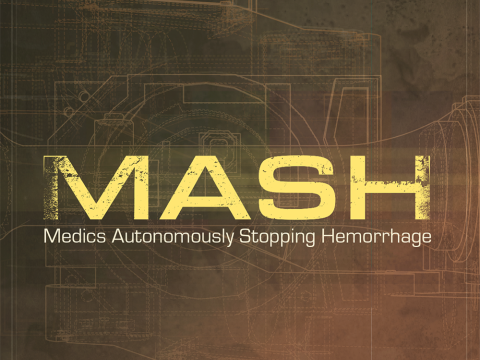Data Repository and Forum Expedites Information Exchange
 |
| The Information Operations Technology Alliance (IOTA) is an online knowledge-sharing forum for the information operations community. One of the alliance’s goals is to provide a repository of technology solutions and expertise that warfighters can access. |
A knowledge-sharing effort is helping the U.S. Defense Department’s information operations community overcome complex operational challenges. Administered by the U.S. Air Force, this information exchange mechanism permits analysts and warfighters to access relevant data from government, academic and corporate experts. The undertaking also gathers subject matter experts together to discuss and to solve specific issues then stores their findings in an online repository.
Exchanging knowledge across the various components of an organization as large and complex as the Defense Department can be a difficult task. The decline of service-specific data stovepipes has enhanced data sharing; however, many specialized occupations such as information operations stand to benefit from increased communications between users and subject matter experts.
The Information Operations Technology Alliance (IOTA) is an example of a cross-department, multiservice knowledge-sharing effort. IOTA’s mission is to be a forum for identifying existing, emerging and developing technologies that may provide warfighters with new information operations capabilities, explains John Bres, an IOTA administrator at the U.S. Air Force Information Warfare Center (AFIWC), Lackland Air Force Base,
Bres describes IOTA as an information-facilitating tool that allows academia, government and industry to share knowledge and insights on all aspects of information operations across disciplines. The alliance meets the information operations community’s needs through three interdependent activities: the Phoenix Challenge information operations conferences, the Information Operations Technology Repository (IOTR) and the Communities of Knowledge and Practice (CKAP). “It essentially helps the folks in the military to solve some of their information operations requirements. We provide a common meeting place,” he says.
IOTA originated from a discussion topic at a Phoenix Challenge conference and was formally launched in late 2002. The AFIWC sponsors the conferences, which serve as a venue to connect individuals across the Defense Department, government, academia and industry. The events typically attract between 350 and 450 attendees and feature briefings, moderated panels, small meetings and roundtable discussions.
Bres notes that the conferences have evolved from covering general information operations topics to focusing on specific themes such as Defense Department transformation, lessons learned from operation Iraqi Freedom and effects-based solutions. The next Phoenix Challenge will be held January 31 through February 2, 2006, at the Johns Hopkins University Applied Physics Laboratory,
The IOTR is another feature of the alliance. The repository is currently under development, but when complete it will serve as a Web-based forum that will allow users to access data about information operations applications and solutions. The core hardware is a secret Internet protocol router network (SIPRNET) server that is currently undergoing testing and is scheduled to be operational in late 2006. Bres plans to demonstrate the online capability at the next Phoenix Challenge conference. Users will have access to the IOTR via the nonsecure Internet protocol router network (NIPRNET), SIPRNET and the Joint Worldwide Intelligence Communications System (JWICS).
Bres envisions the IOTR as a clearinghouse for information operations data and opinions in the same way publications such as Aviation Week and the Wall Street Journal represent information and opinions for their communities of interest. “We get information from good sources, and we present it for folks to look at. It’s not completely authoritative, but it’s very helpful,” he says.
The IOTR is designed to serve busy information operations action officers whose jobs are multifaceted, demanding and time-consuming. Registered users can access the system briefly several times a week. “You go here if there is information related to some sort of technical problem that you want to solve with information operations-related technology. It will give you pointers about who your other service peers are and what they are doing, what companies are doing that may be helpful, and what’s going on in the academic community that may be helpful. Ideally, in the space of one to two television advertisements, you can find the information you need to help you move closer to solving your problem,” Bres shares.
The IOTR comprises commercial hardware and software, explains Ivan Chestnut, The Mitre Corporation’s lead engineer for the IOTA effort. He notes that the system’s Web interfaces will be restricted to specific information operations user groups at different classification levels. Basic content repository and collaboration services will include database storage, workflow management, discussion threads, news services, bulletin boards, chat and whiteboard functions, and list server capabilities. The system’s hardware is located and managed at Lackland Air Force Base.
If the alliance receives additional funding and resources, Bres would like to provide more services, including a natural language capability, intelligent data retrieval, knowledge discovery functions, demonstrations, virtual conferencing and one-way information transfer from the NIPRNET to the SIPRNET and JWICS.
The software is built around Oracle’s collaboration suite. The system is set up to be browser neutral, allowing registered users to access information from their desktops in a variety of government information technology environments, such as Microsoft Explorer, Firefox, Netscape and Apple-based browsers. Browser neutrality is important because academia and industry also are expected to use the repository. “We want to have academia to be able to put in their white papers. We also want industry to put in tool sets that can help the Defense Department,” Chestnut says.
 |
| IOTA also forms working groups of experts from government, academia and industry to discuss and suggest solutions for specific information operations issues and how they might operationally support military personnel such as this U.S. Air Force radar technician participating in a homeland security exercise. |
Human information sharing remains a key component of IOTA. The personal exchange of knowledge and opinions is part of the alliance’s CKAP groups. These small working groups comprise 15 to 20 experts from across academia, government and industry and are supported by an e-mail interest community of up to 100 people for each group. IOTA supports between three and five individual CKAP groups at any given time.
The IOTA team must prepare for six to 12 weeks to set up a CKAP meeting. During this time, Defense Department and information operations stakeholders are contacted and the agenda is set. However, Bres is quick to note that IOTA never dictates the goals or outcome of the meeting to the CKAP members. “These subject matter experts have this precious intellectual property. Because they are experts, they are very busy. When we bring them together, we don’t want to waste a second of their time. We’re very deliberate about facilitating these meetings well. We work to make sure that all voices are heard, that information is shared and that they have a sense of ownership in the group and where it’s going,” he says.
The results of the CKAP meetings vary based on information sharing needs. IOTA will often send the equivalent of the meeting’s minutes and lessons learned to the community. In the future, Bres hopes to capture the expertise of group members and place it in a data repository that can be shared with the community at large. For example, the operational security working group outlined the significant issues facing the information operations community, and it is prioritizing steps for improvements. The group also shared all of the data it believes will help the community. He adds that this type of information is shared with the specific user group and is then placed in the repository for all to use.
IOTA currently is using the Defense Department’s Global Information Grid (GIG) enterprise services (GES) portal as a temporary data repository to share operational security information and minutes of CKAP meetings with the military community. Chestnut notes that not many industry and academic members can access the GES portal, but he adds that the CKAP working groups are using e-mail list services to try to fill this gap until the IOTR goes online.
Many of the CKAP groups meet either the day before or the day after the Phoenix Challenge conferences because many of the people who come to the event also want to participate in the CKAP groups, Chestnut says. For the operational security community, IOTA has arranged its meetings to coincide with events and conferences associated with the community of interest. The alliance also has conducted telephone conferences that brought in 20 to 30 individuals who participated in the discussion at the CKAP meetings.
Bres hopes that IOTA will become more firmly established and continue to add value to the community. He notes that over the years, the Phoenix Challenge conferences have found their rhythm, CKAP groups are being established and improving, and the data repository is collecting content. But he adds that these activities are interdependent and support each other.
Web Resources
Information Operations Technology




Comments